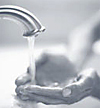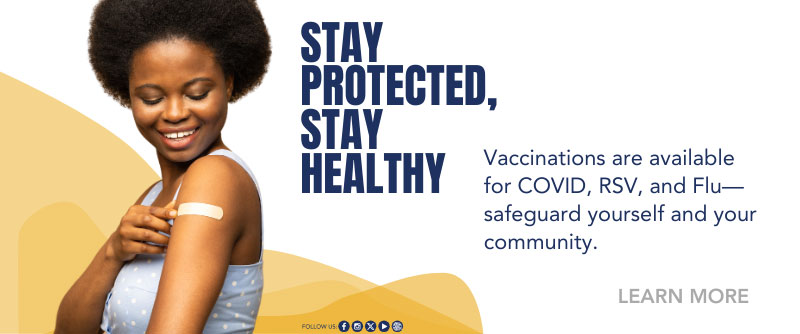
Handwashing is the single most important means of preventing the spread of infection.
Our hands bring us into contact every day with disease-causing bacteria and viruses, including those that cause flu. Frequent handwashing can remove or destroy these germs. It's a powerful tool against disease.
How to Wash
Thoroughly washing every part of the hands is essential. A proper handwashing takes at least 20 seconds.
- Wet your hands under warm running water and apply some soap.
- Lather up - apply soap and rub your hands together hard to scrub dirt and germs away.
- Wash hands front and back, and between the fingers.
- Wash around your wrists and under your nails.
- Rinse well in warm water.
- Dry your hands completely with a clean cloth or paper towel.

It's in Your Hands: Handwashing basics for kids and materials for teachers
When to Wash
You should wash your hands before:
- Handling food
- Setting the table
- Eating
- Treating a scrape, cut, or wound
- Tending to someone who is sick
- Putting in or taking out contact lenses
You should wash your hands after:
- Going to the bathroom
- Changing diapers
- Coughing or sneezing
- Preparing food
- Touching burns, cuts, or sores
- Playing with pets or animals
- Playing outside, to reduce exposure to lead in soil and dust
- Handling dirty dishes, utensils, or touching cabinet tops where food is prepared
- Being around someone who is sick
- Taking out the garbage
Why Washing Works
You need all the steps above to make handwashing work its best for you.
- Water by itself is not enough to get rid of all germs. Your skin naturally produces oils that germs can stick to. Soap breaks down that oil and makes it harder for germs to stay on your hands.
- Rubbing your hands together is important to loosen and remove the dirt and germs that stick to your hands. Scrub well and thoroughly. Even just a few germs are sometimes enough to cause infection.
- Don't be hasty. Wash your hands for at least 20 seconds for the best results.
- You probably don't think much about your fingernails when washing your hands, but you should. Dirt and germs collect there and move to your eyes and mouth when you touch them. Use the fingernails of one hand to clean under the nails of the other.
- If you can't get to soap and water right away, try carrying an alcohol-based gel in your backpack to use in the meantime.
- Drying hands thoroughly after washing is important. If you have a choice, use a paper towel instead of a cloth to prevent the spread of germs to others who might use the same towel.

